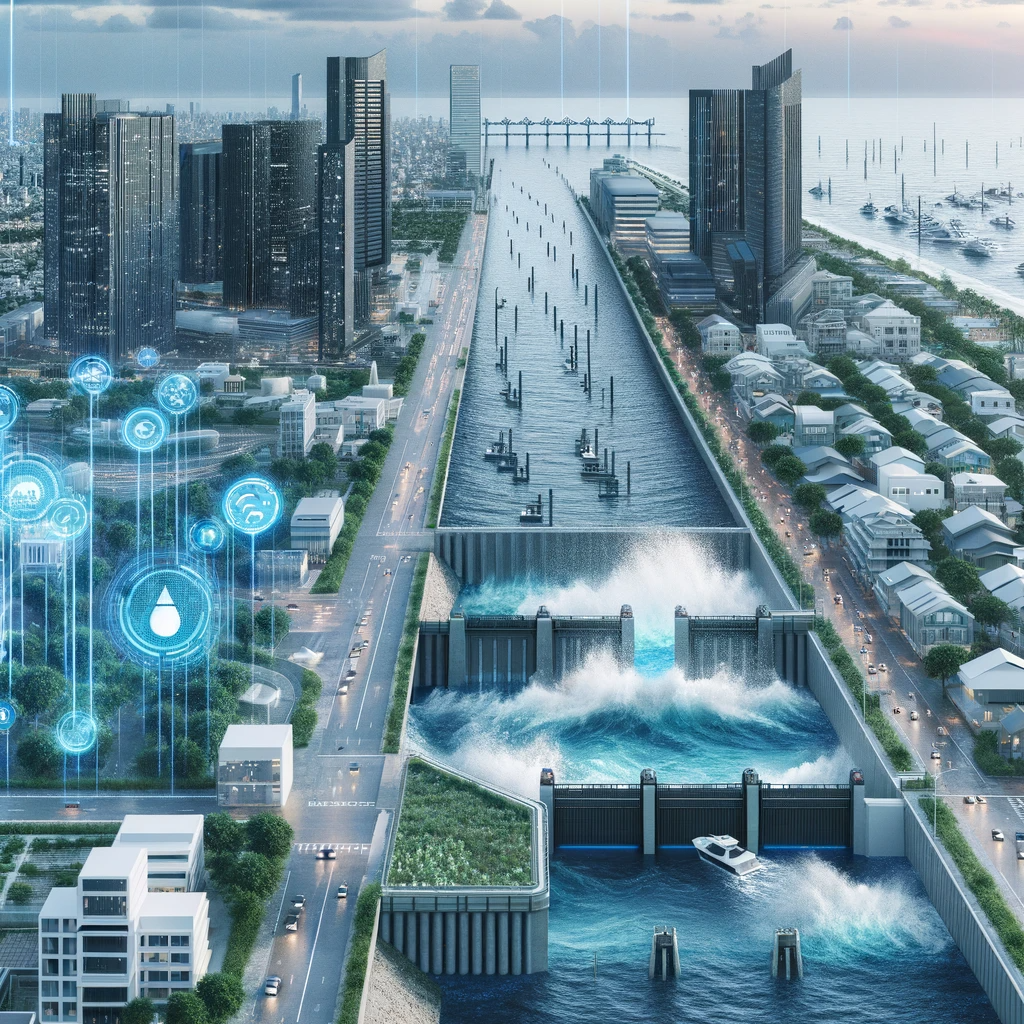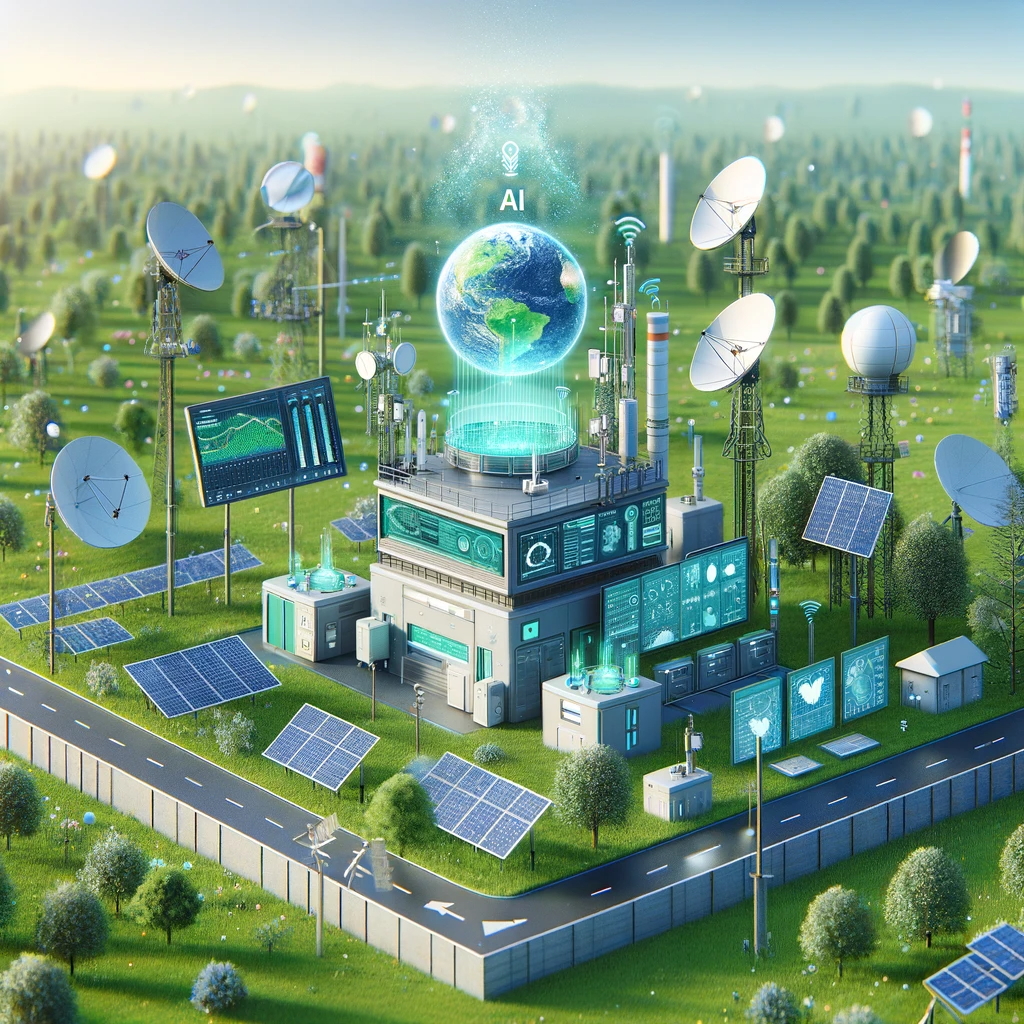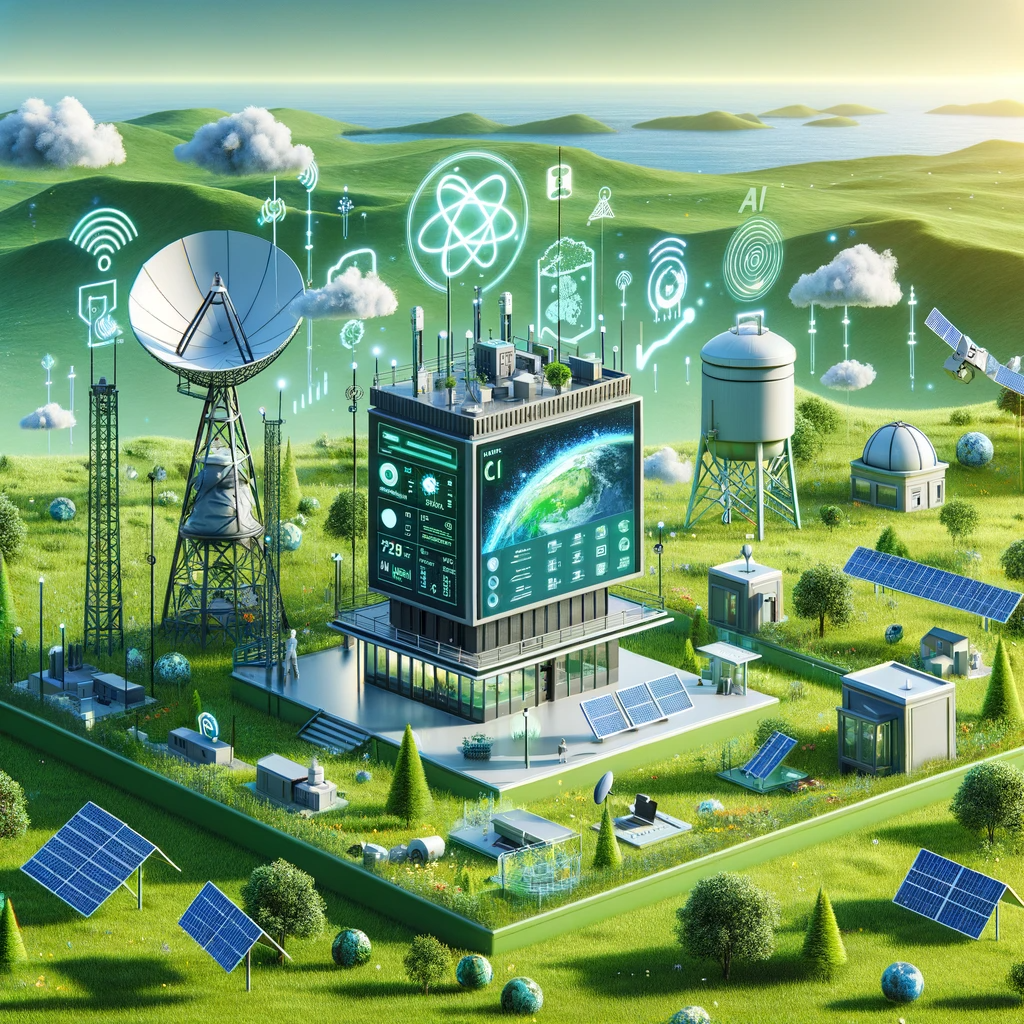Understanding Climate Change and Adaptation
Climate Change Overview
Climate change is a pressing global issue driven by human activities, primarily the emission of greenhouse gases such as carbon dioxide (CO2), methane (CH4), and nitrous oxide (N2O). These emissions trap heat in the Earth’s atmosphere, leading to a rise in global temperatures. The consequences of climate change are far-reaching and include rising temperatures, extreme weather events, sea-level rise, and loss of biodiversity.
Importance of Climate Change Adaptation
Climate change adaptation focuses on building resilience to the changes that are already occurring. It involves adjusting to new climate realities, reducing vulnerabilities, and protecting communities and ecosystems from harm. This is crucial because even with significant mitigation efforts, some level of climate change is inevitable due to past emissions.

The Role of AI in Climate Science
AI in Climate Data Analysis
AI plays a pivotal role in climate science by enhancing our ability to analyze vast and complex datasets. Climate scientists rely on a wide range of data sources, including temperature readings, atmospheric pressure, ocean currents, and greenhouse gas concentrations. AI excels in this domain due to its capacity to process and analyze data at unprecedented scales and speeds.
Climate Modeling and Prediction
AI-powered climate models have revolutionized our ability to predict future climate conditions. Climate models are essential tools for understanding how the climate system responds to different scenarios and how it might change in the future. AI enhances climate modeling by improving accuracy and enabling faster simulations.
Monitoring Environmental Changes
AI technologies also contribute to monitoring environmental changes related to climate change adaptation. Satellite imagery and remote sensing data, when processed with AI algorithms, provide critical information for assessing shifts in ecosystems, deforestation, glacier melting, and more.
AI in Climate Change Adaptation
Early Warning Systems
AI-driven early warning systems have become invaluable tools for climate change adaptation. These systems leverage AI’s data analysis capabilities to predict and detect extreme weather events, allowing for timely response and risk reduction. Examples include hurricane and typhoon prediction, flood forecasting, and heatwave alerts.
Natural Disaster Management
Beyond early warnings, AI technologies assist in managing natural disasters and their aftermath. Disaster response and recovery efforts benefit from AI applications in various ways, including search and rescue, resource allocation, and damage assessment.
Agriculture and Food Security
Agriculture is highly vulnerable to climate change, with shifting weather patterns affecting crop yields and food security. AI technologies offer solutions for climate-resilient agriculture, including crop monitoring, yield prediction, and precision agriculture.
Water Resource Management
Effective water resource management is essential for climate change adaptation, as changing precipitation patterns and prolonged droughts can strain water supplies. AI aids in optimizing water usage and distribution through smart irrigation and water quality monitoring systems.
Challenges and Ethical Considerations
Data Accessibility and Bias
Challenges related to data availability and quality pose significant hurdles in AI-driven climate science. Access to comprehensive, high-quality data is essential for accurate modeling and predictions. Moreover, AI algorithms are not immune to biases present in the data they are trained on. Addressing these biases is critical to ensuring that AI systems produce fair and equitable results in climate analysis.
Energy Consumption
The energy consumption of AI technologies is a valid concern, especially considering the environmental goals of climate change mitigation and adaptation. Energy-efficient AI solutions and sustainable data centers must be developed to minimize the carbon footprint of AI-driven climate science efforts. Striking a balance between AI’s computational demands and sustainability is a challenge that requires innovative solutions.
Ethical Use of AI in Climate Adaptation
Deploying AI for climate adaptation must be accompanied by ethical considerations. Transparency, accountability, and equity are paramount. Decision-makers must ensure that AI systems are used responsibly, that their predictions are interpreted and acted upon judiciously, and that benefits are equitably distributed. Safeguarding against unintended consequences and misuse of AI in climate adaptation is an ongoing ethical challenge.
Case Studies and Success Stories
Highlighting notable case studies where AI has made a significant impact on climate adaptation illustrates the practical applications of AI-driven technologies. These case studies can span various regions and sectors, showcasing how AI is being leveraged to address real-world climate challenges.

Future Prospects
The future prospects of AI-driven technologies in climate science are promising. Ongoing research and innovation are expected to yield more advanced AI models, improved data accessibility, and enhanced computational efficiency. Additionally, AI’s potential to integrate with other emerging technologies like quantum computing and advanced sensors holds great promise for further advancements in climate science.
Conclusion
In conclusion, AI-driven technologies are playing a pivotal role in climate change adaptation. From enhancing data analysis and climate modeling to providing early warnings for extreme events and aiding in disaster management, AI is a powerful tool in building resilience against the impacts of climate change. However, it is essential to address challenges related to data quality, energy consumption, and ethical considerations. By doing so, we can harness the full potential of AI to support climate change adaptation efforts. As we continue to innovate and collaborate, AI-driven solutions will be instrumental in helping communities adapt to the ever-changing climate and build a more sustainable and resilient future.
